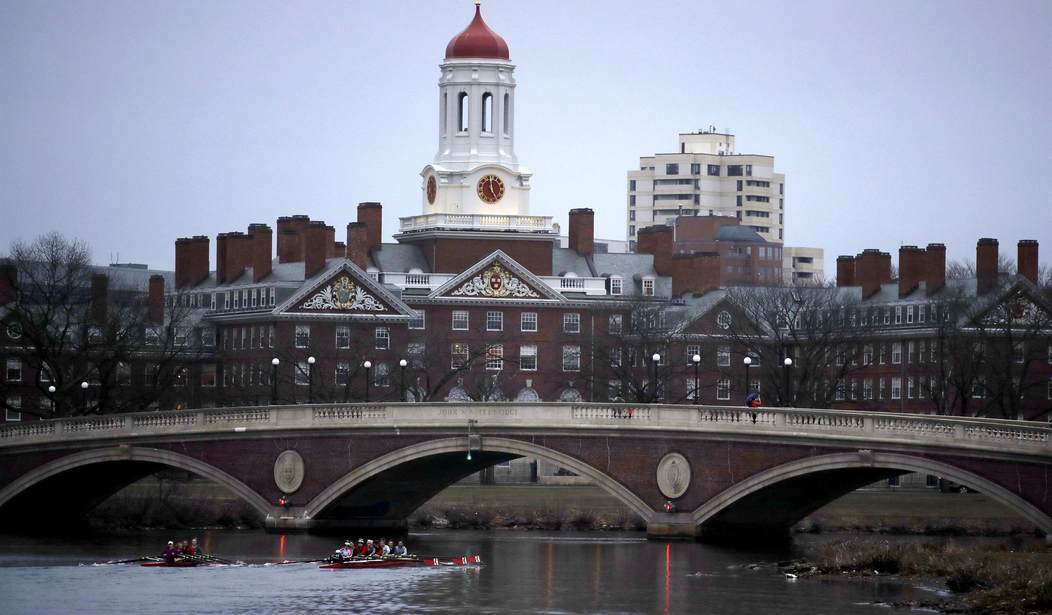Ever since the Supreme Court swatted down race-based affirmative action policies at Harvard and other universities, the national debate has shifted to legacy admissions. The practice of giving preferential treatment to the children or other relatives of the school’s alumni is viewed by many as being as equally unfair if not more so than showing preference based on the color of an applicant’s skin. Race-based preferences in admissions had been facing criticism for some time, while legacy admissions largely flew under the radar. But now a lawsuit has been brought against Harvard by a group called Lawyers for Civil Rights. They claim that legacy admissions favor white students and therefore run afoul of the Civil Rights Act. The Wall Street Journal apparently wanted someone to take the other side in this debate and defend legacy admissions, so they brought in Harvard history professor James Hankins with an op-ed titled The Case for Legacy Admissions. (Subscription required)
I’m not a lawyer and have no opinion on the legal merits of the suit. I do think, however, that in the case of private universities there is a great deal to be said in favor of preferential admission of legacies—other things being equal, like test scores and grades. Legacy admissions are surely harder to defend in public universities, where taxpayers are footing the bill and expect the institution to be fair to all citizens. Private universities are different. They depend on the generosity of alumni.
The wealthiest private universities, like Princeton and Harvard, can’t begin to maintain their operations on tuition alone. Far from it. At Harvard, tuition revenue pays only 21% of operating costs. It is endowments, built from the generosity of alumni over many generations, that allow them to function as great universities. If we are to continue to have private higher education, endowment funds have to come from somewhere. The question is where.
Few characters in our culture did more damage to the reputation of legacy admissions than Kent Dorfman in Animal House. But I will at least somewhat agree with Professor Hankins when he claims that the vast majority of legacy admissions are far more qualified than the Dorfman character as it was portrayed. He also points out multiple (unnamed) examples of alumni whose children or grandchildren failed to be admitted to Harvard. Assuming those are accurate claims, the legacy admissions system is neither automatic nor porous in terms of applicant quality, academically and otherwise.
But with all that said, there are still problems with Hankins’ defense. First of all, he puts a disclaimer on his defense suggesting that legacy applicants should only be considered with “other things being equal, like test scores and grades.” Later in the piece, he reiterates that such admissions should be acceptable providing “the children of alumni meet the standards of admission.”
But therein lies the problem. Admissions at virtually all schools are determined by considering many factors beyond “test scores and grades,” many of which can be rather subjective. Consider two high school students with roughly equal grade point averages and SAT scores who both participated in extracurricular school activities. If one played on the school’s sports team while the other was the president of the chess club, should one be given preference at Harvard or any other school? And if so, would having a parent who is an alumnus outweigh that more favored after-school activity? And aside from all that, does anyone really believe that only the students with the very highest scores and grades move on to further consideration based on those more subjective criteria?
I would also take issue with what appears to be Professor Hankins’ even more prominent argument. He speaks of the importance of a university’s endowments, largely received through donations from alumni. Failing to admit their children would no doubt decrease their incentive to keep making donations, and Hankins cites personal experiences related to him by people who have stopped donating for that reason. We can set aside for today the ongoing argument about the issues many of us have with the vast endowments some of these schools are sitting on and the skyrocketing cost of a college education. But is that really your argument? Actual, measurable merit should be outweighed by cash flow? This debate is starting to sound a bit less noble.
In the end, if race was (rightly) seen as a factor in the war on merit when it comes to college admissions, why would other non-academic and performance-based factors be seen as at least equally corrosive? And that would include the blood flowing through the applicant’s veins. Sharing DNA with someone who previously graduated from the school of your choice proves nothing about your accomplishments and potential any more than your race or gender. Look no further than Paris Hilton or Hunter Biden for proof. In the end, this debate comes down to the question of whether or not you believe in a meritorious system at all levels. And true “merit” in terms of scholastic performance is hard enough to measure as things stand without adding in complicated fudge factors based on who an applicant’s ancestors are.







Join the conversation as a VIP Member